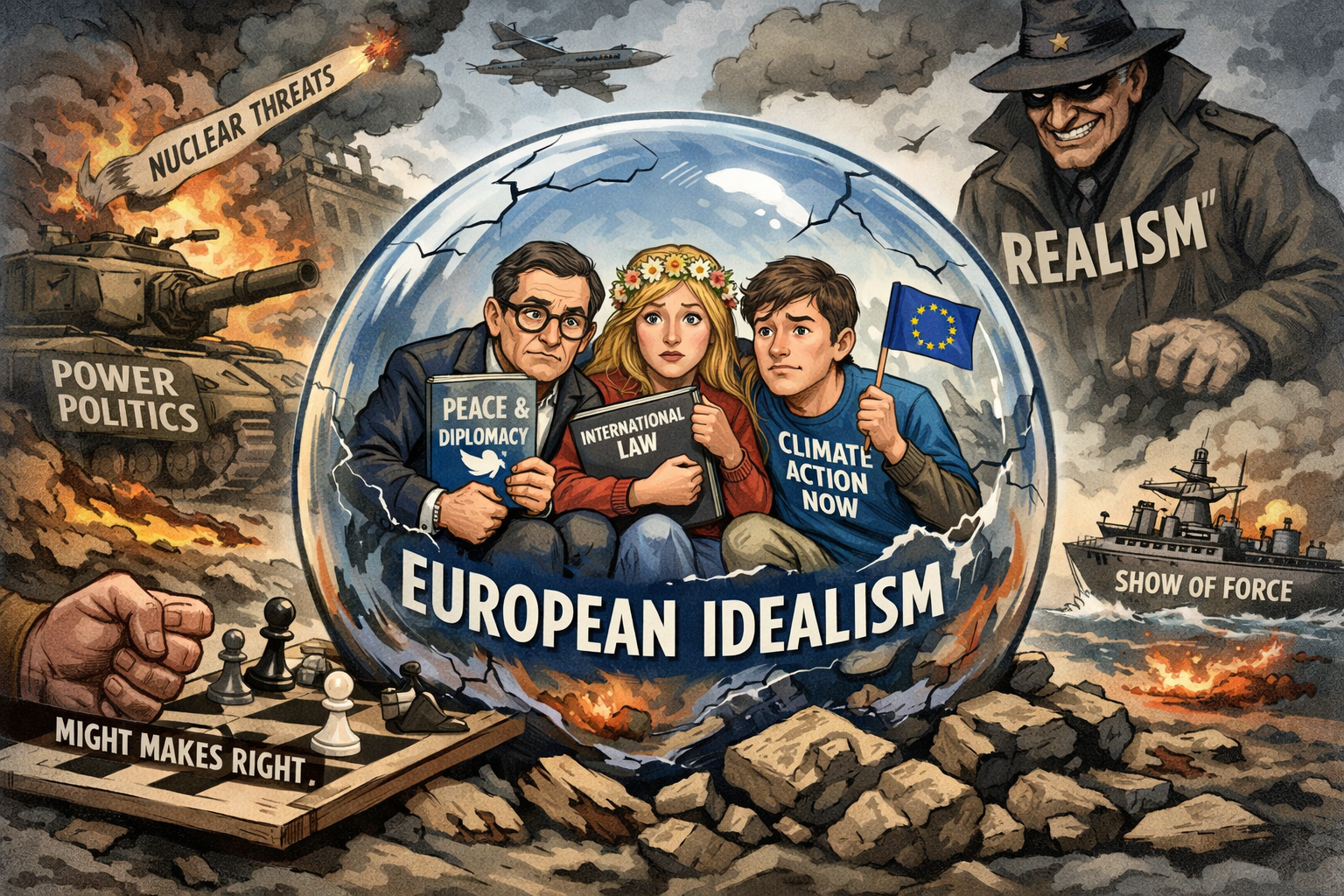Ambassador Samantha Powers’s outburst against Russia at the UN is aptly symbolizes the decay of the American-led order
“That, gentlemen is not just a sleeping man, it’s a sad metaphor. The second-most powerful man in what was once the most powerful country on earth.” President Eisenhower’s comment upon arriving for a meeting with British Foreign Minister Anthony Eden and finding the latter in a morphine stupor, blood on his sleeve, is what makes the Netfix series The Crown sterling television.
Samantha Power, the U.S. Ambassador to the United Nations, left a not dissimilar impression with her outburst against Russia in the UN Security Council on December 13: “Are you truly incapable of shame? Is there literally nothing that can shame you?” The teary eyes, the open-mouthed anguish: Everything you are not looking for from the chief envoy of the most powerful country on earth.
Don’t get me wrong: I agree with the sentiments expressed by Ambassador Power. The bestiality of the Syrian conflict and the brutality of the interventionist powers are exasperating, to say the least. “Nauseating” is perhaps a better word: What else can you call fake ceasefires that lure innocents from their homes so they can be more easily murdered with falling bombs?
What Ambassador Power seemed to forget in her outrage, however, is that she was commenting also on the direct consequence of her own Administration’s “hands-off” policy. Surely she understood that her impotent rage would not generate respect, but rather the same shrug that the United States afforded its foreign critics during, say, the battle for Fallujah in 2004?
The fall of Aleppo comes at the end of what has been an annus horribilis for American foreign policy. The much vaunted “pivot” to Asia has failed to bolster American influence in the region, and, now that its key politio-economic foundation, the TIPP trade arrangement, is dead, it is never likely to generate any influence. The President of the Philippines, a key ally, went to Beijing in October and stated that it was “time to say goodbye to the United States.” One month earlier China apparently snubbed the American President by denying him the “red carpet” treatment invariably afforded other state leaders.
In Europe, meanwhile, the pledges from the 2014 NATO Wales summit to raise military spending to 2 percent of GDP among member states was followed by a 1.5 percent decline in military spending among West European allies in 2015, according to SIPRI. The Europeans enjoy American security guarantees and pay lip service in return. Far from their original objectives, the liberal internationalist interventions in Afghanistan, Iraq, and Libya have devalued respect for American arms. The Syria policy has done much the same for American diplomacy.
These developments highlight the shortcomings of President Obama’s “don’t do stupid stuff” foreign policy doctrine. While we can all agree that it is wise to avoid foreign entanglements that are not in the national interest, strategic abdication creates a different but not necessarily less daunting set of problems. Power abhors a vacuum. And when those that benefit from American power stop fearing potential blowback from ignoring American priorities, the national interest will suffer.
Nowhere is this development more apparent than in the Middle East. Rarely has so much capital and blood has been expended with so little influence in return. Iran was a primary beneficiary of the Bush Administration’s errors, and Russia is arguably the primary beneficiary of Obama’s Middle East policy mistakes. There are signs that Egypt and Turkey –friends and allies of the US- have banded up with Moscow and Teheran in an apparent effort to shut the America out of the end-game in Syria. Kairo and Ankara have joined an axis over the Syrian settlement that will deny the Kurds, the staunchest of US affiliates, the self-determination they fight for.
Meanwhile the decline of Egypt has made Saudi Arabia the reluctant leader of the Sunni world. Prince Muhammad Bin Nayef has not had a lucky hand in this great game. 2016 has seen Saudi has suffered a series of Saudi setbacks in Lebanon, Syria, Iraq and Yemen – unsettling the regional balance of power. The Iranian nuclear deal has done nothing to dissuade an apparent quest for regional hegemony. A showdown is looming, one that the US will have every chance of getting dragged into in the years ahead.
It is easy to empathize with American foreign policy elites. It is a thankless job to be what Robert Keohane called the “system determining power”—in other words, to be constantly monitoring local, regional, and global balances of power through “everything from kind words to cruise missiles,” as Secretary of State Madeleine Albright once put it. Why would the U.S. government do so willingly? Because it serves American interests by placing the United States at the heart of the international order, thereby extending American primacy beyond the date its material resources might suffice, and because, all told, it turns out to be a cheaper way to purchase, so to speak, a somewhat safer and more virtuous (by Western principles) world.
Obama has taken a step back from this expansive U.S. role in the hope that other powers will do more. Some are trying, but in the meantime what has followed instead is a far more rapid erosion of Pax Americana. The peril, as E.H. Carr pointed out in his famous post-mortem of interwar-years diplomacy, is that, when the established powers (in our case the United States) weaken in their resolve to uphold the international order, it allows rivals to grow powerful. The rivals will predictably claim (often rightly) that the international system is weighted to prolong the dominance of the established powers.
It seems we are at a moment foretold by Robert Gilpin in his book War and Change in World Politics in 1981. Gilpin argued that history has seen a series of international orders that all have in common the fact that they were created by hegemonic states as a result of victory in war. The prevailing order thus serves the basic interests of those who forged it. The system, therefore, invites challenges by rising powers. The most dangerous moment in world politics, Gilpin reasoned, occurs when the determining power no longer stands ready to enforce its own rules of order. This breeds uncertainty, insecurity, and risky behavior.
We seem to be at precisely such a point, even though the revisionist forces are diffuse (China, Russia, Iran, and non-state rebels such as Sunni jihadis) and mostly uncoordinated. As a result the incoming presidential administration takes office at a pivotal moment for the West.. Some Americans desire withdrawal and abstention. That will hand the initiative in global politics to emerging powers who—let’s not kid ourselves—will use it to erode American influence. Steady nerves and flexible morals will be required to avoid the downward spirals of perceptions and misperceptions that lead to war.
The alternative is a forward-leaning posture that would invest the Trump Administration in an altogether more complex endeavor to restore the balance of power in Europe, in the Middle East, and in East Asia by altering the cost-benefit equation of challenger actors. That, surely, would require a well-orchestrated ensemble of soft and hard power—but also the human intelligence measures that the U.S. government once employed so skillfully. Not infrequently the balance of power hinges on a few select states. And in those states decisions are made by individuals, each with human interests, ambitions and frailties. In order to win the game, one has to play.
President Obama will go down in history as the president who created the arm-room for the next president to develop a grand strategy. Or not. His magisterial aversion to risk has also avoided follies, but it has also made American priorities so vague that its chief envoy in the UN seems to think she represents an NGO. In this regard Miss Powers’s speech was not just a lapse, it was a sad metaphor.
Published in The American Interest on 21.12-2016




